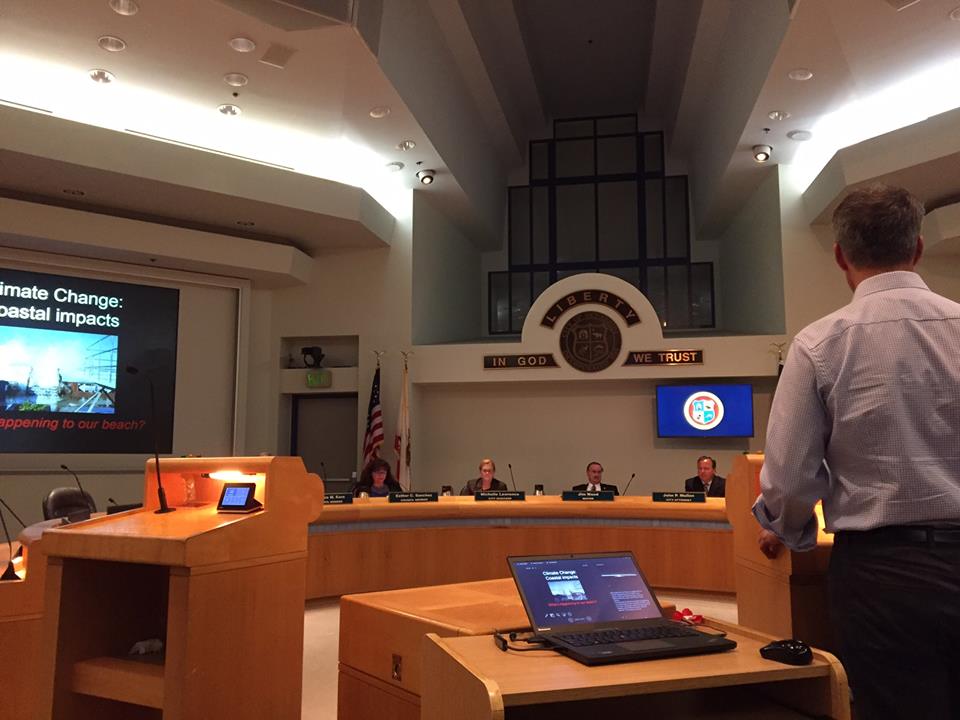

By: Jennifer Olim, KYH2O
At a hearing last week for the county's Urban Water Management Plan (UWMP), Surfrider climate spokesman Dr. Bruce Bekkar and policy director Julia Chunn, presented a compelling case for the importance of considering climate change in water policy decisions. Dr. Bekkar brought the effects of global warming into our backyard. Because of a warming ocean and atmosphere, if you live anywhere in the county, you will experience the effects of more severe storms, northward migration of mosquito borne illnesses, and more severe heat waves and drought. If you live on the coast or just like to go to the beach, then sea level rise might sweep that sand right out from under you.
According to the consensus authority on climate change, the IPCC (Intergovernmental Panel on Climate Change), a conservative estimate for global sea level rise is half a meter to a meter (~1.5-3.5ft) by the end of this century. As pointed out by Dr. Bekkar, that means that sea level could rise a foot by 2040 in his home town of Del Mar and wash away his beach. But surely a foot of sea level rise isn't so bad? Actually it is, because that one vertical foot of water can travel many feet up a sloping beach. There are all kinds of serious effects of sea level rise: shoreline erosion, high tide increases, greater storm surges, possible saltwater intrusion into freshwater supplies, and wetland loss. None of this is good for our coastal ecosystems or economy.
What does this have to do with the County's Urban Water Management Plan? It means that water agencies have to wrap the effects of climate change and what they can do to decrease greenhouse gas emissions into their planning. It takes much more energy to transport water long distances or operate a desalination plant than it does to recycle and conserve our local supplies. By maximizing recycling and conservation we can minimize our greenhouse gas emissions. In addition, we need to aggressively protect natural coastal buffers and ecosystems like wetlands and estuaries. From the global to the local picture, Surfrider is working to protect our oceans, waves, and beaches!
